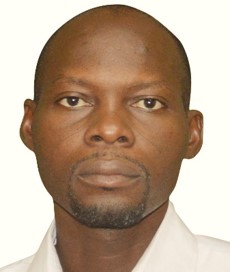“The key of the success of an innovation project is to know how to show the invisible: the need in functional capacity building. It enables the gaining of time, performance and productivity.”
Hello, who are you?
I am Nikiema Lassya. I have expertise in capacity needs assessments for multi-stakeholder innovation partnership and organization of innovation support services. I work at DGRSI for within the Ministry of Higher Education, Scientific Research and Innovation (MERSI) in Burkina Faso. Its main responsibility is the conception of political and strategic documents, and the coordination and the control of research and innovation activities. For the past three years I am the head of the scientific research and innovation promotion unit (SPRSI). What interests me most in CDAIS is all the knowledge and methodology learnt and deepened at each step. Particularly, skills on facilitation of multi-stakeholder meetings, the theoretical approach of innovation, methodology of diagnosis, and the tools used.
What are your roles and responsibilities as National Innovation Facilitator?
I have different hats in CDAIS. I am facilitator of two innovation partnership: the organic BioSPG label, and the land charters partnerships. I am also part of the expert team to conduct organisational capacity needs assessments for organizations providing innovation support services. I am a member of the CDAIS steering committee, as the representative of the director of DGRSI/MESRSI. My role in CDAIS is also to support the organization and facilitation of multi-stakeholder events.
What has CDAIS changed for you?
I received facilitation training at CIRAD, enabling me to handle key CDAIS concepts and diagnosis tools such as the innovation trajectory, problem/solution tree, network map, and facilitation and negotiation skills for multi-stakeholder processes. It is particularly important to have tools for win-win negotiation in face of difficult situations so that facilitation has impact. I have learned and strengthened my skills on event organization around innovation, evaluation and monitoring of needs in capacity building. Usually, agricultural innovation stakeholders look for financial and material assistance. Managerial, organizational, functional or governance skills are not enough and are essential for scaling up development. I am now convinced that the answer to innovation and stakeholder issues needs to take functional capacities into account as a priority for more efficiency and greater success in innovation projects.

